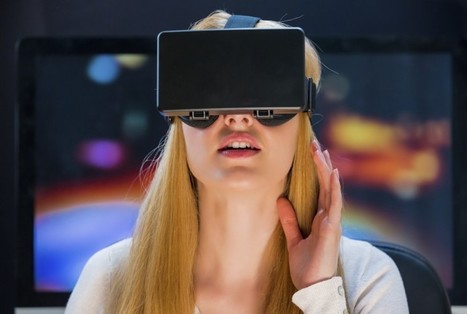A person’s environment plays a major role in his or her mental health. A person’s response to the environment is affected by his or her mental health, and in turn, mental health increases and decreases with exposure to certain things in the environment – it’s a cycle. Now, scientists believe time spent in a virtual environment can help a person overcome challenges through exposure to problematic situations.
A recent scientific study looked at varying groups of people dealing with mental health issues, including schizophrenia, anxiety, eating disorders, and substance abuse. Scientists looked at what happened when these groups underwent VR exposure-based treatments and found these experiences can help reduce anxiety disorders.
There were also other promising results. Scientists concluded virtual reality could transform mental health assessments, and make it easier to understand and treat various mental health issues. The ability of VR to simulate reality increased access to different therapies and enhanced treatment outcomes.
Results of VR and Mental Illness Not Surprising
Most of the researchers involved in the latest look into VR and mental health were not surprised by the promising outcome. There are several studies in the works that will look at virtual environments and their effect on a variety of mental and emotional health issues, including:
- Autism
- Eating disorders and obesity
- Drug and alcohol abuse
- Pain relief, especially with burn victims
- Phobias, including fear of public speaking or open spaces
- Post-traumatic stress disorder
- Smoking cessation
- Stroke rehabilitation
- Stuttering
In other efforts to see how virtual reality games can be used to help with healing, researchers found that engaging the body and mind simultaneously with VR games could be “powerful medicine.”

VR environments allow users to interact as if they are in the real world and overcome fears varying from flying to leaving their homes to engaging in conversations. Because the experience seems real, VR users overcome their fears through repetition of behaviors associated with their phobias.
One of the programs included in research is exercise video games. According to the March 2012 issue of the Harvard Heart Letter, scientists used some of the most popular video games on the market at the time to study physical movement and exercise. The American Heart Association also took part in projects to determine how helpful video games could be for helping people improve their health, self-esteem, and self-efficacy, and for promoting social support and making overall positive improvements in health behaviors. They found that video games that combined physical movement and mental engagement provided a variety of health benefits.
This success led to current attempts to see if virtual environments could not only help a person improve his or her overall health and approach to physical exercise, but to also combat specific mental health issues.
Virtual Reality and Mental Health
The medical field is tackling mental health issues head-on these days and virtual reality could play a major role in combating these health problems.
Since VR is able to create powerful simulations of the scenarios in which psychological difficulties occur, but keep people “safe” because the scenarios are not 100 percent reality, people are able to engage in treatment that before would have been impossible. What a patient was once reluctant to try, they’re willing to give a shot in a virtual environment.

So far, 285 studies have been published concerning VR and mental health, most of which have focused on using VR to treat anxiety disorders and particularly phobias, social anxiety, and PTSD. The results have been encouraging—VR is a proven means for managing cravings of alcoholics and nicotine-dependent patients, and for delivering rapid, lasting improvements for other mental health issues. Two studies focused on depression and more are expected.













[…] 参照元サイト名:VR Fitness Insider URL:https://www.vrfitnessinsider.com/virtual-reality-offers-effective-treatment-mental-health-issues/ […]